Getting into the profession
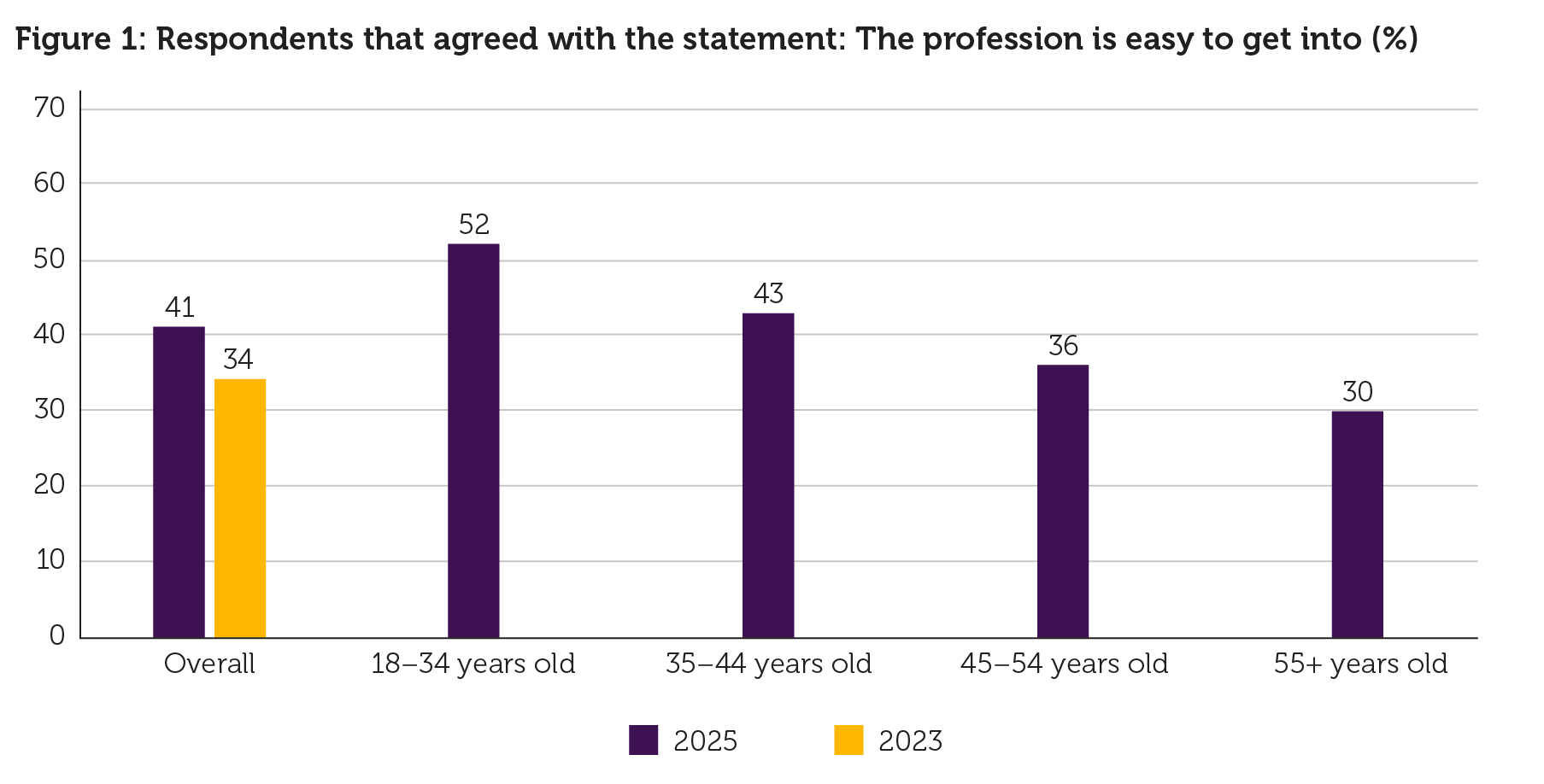
When asked about starting a career in the people profession, younger professionals were more likely to feel the profession was easy to get into. Over half (52%) of 18–34-year-olds compared with 41% overall said the profession was easy to get into and this dropped to 30% for 55+ age group (Figure 1). There are multiple reasons for why this could be, one being that for previous generations there may have been less of a clear career path into HR out of school or higher education; the increasing professionalisation of HR and the growth of the profession may have made it easier for younger professionals today to join HR compared with previous generations (this assumes that those 55+ entered the profession around 20 years ago or earlier).
Read more on the different routes into HR.
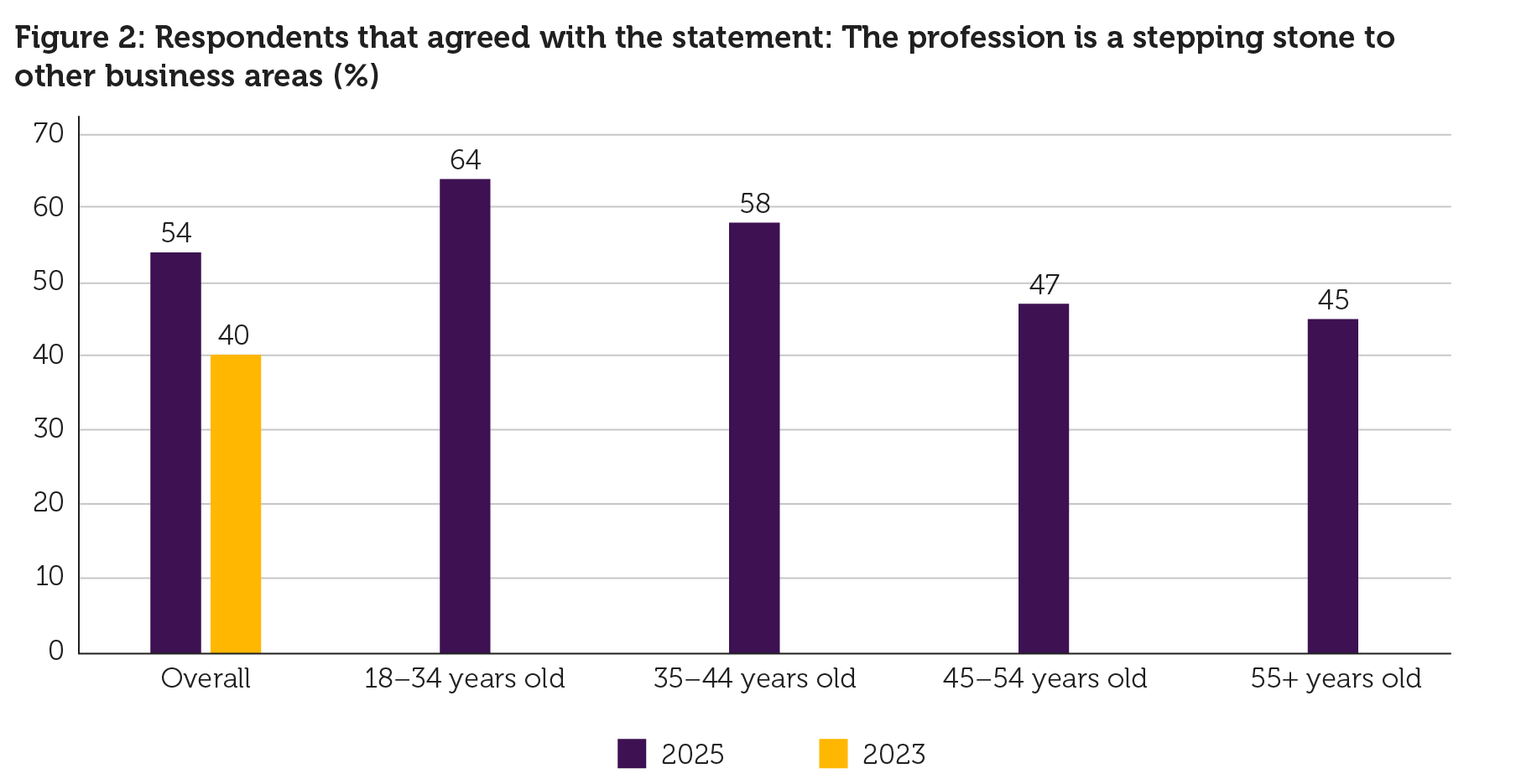
Younger professionals were more likely to perceive HR as a route to working in other areas of the business with 64% of 18-34-year-olds, compared with 45% of 55+ year old respondents, agreeing the profession is a stepping stone to other business areas (Figure 2). This could reflect a potential increased willingness among younger generations to adopt less linear career paths than older generations and being more flexible when considering their ability to change profession or specialism.
Building a career in the people profession
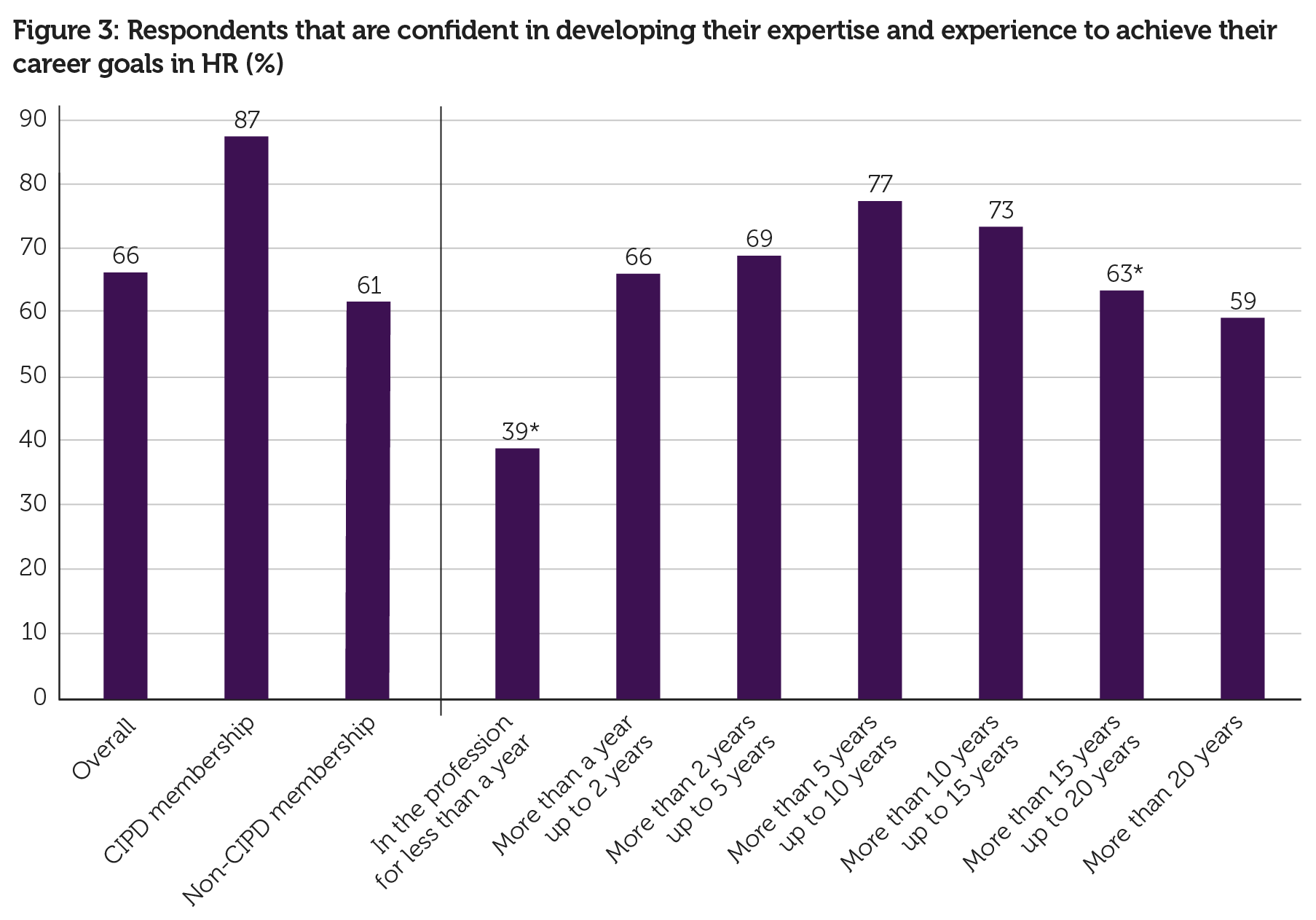
Confidence in developing a career in the people profession was generally high (66%) with some variation across different groups of respondents (Figure 3). This might suggest those newer to the profession may require increased support to develop their careers (however the small sample size for this group should be considered when reviewing these results).
Those with CIPD membership had more confidence than those without membership in developing their expertise and experience to achieve their career goals (87%).
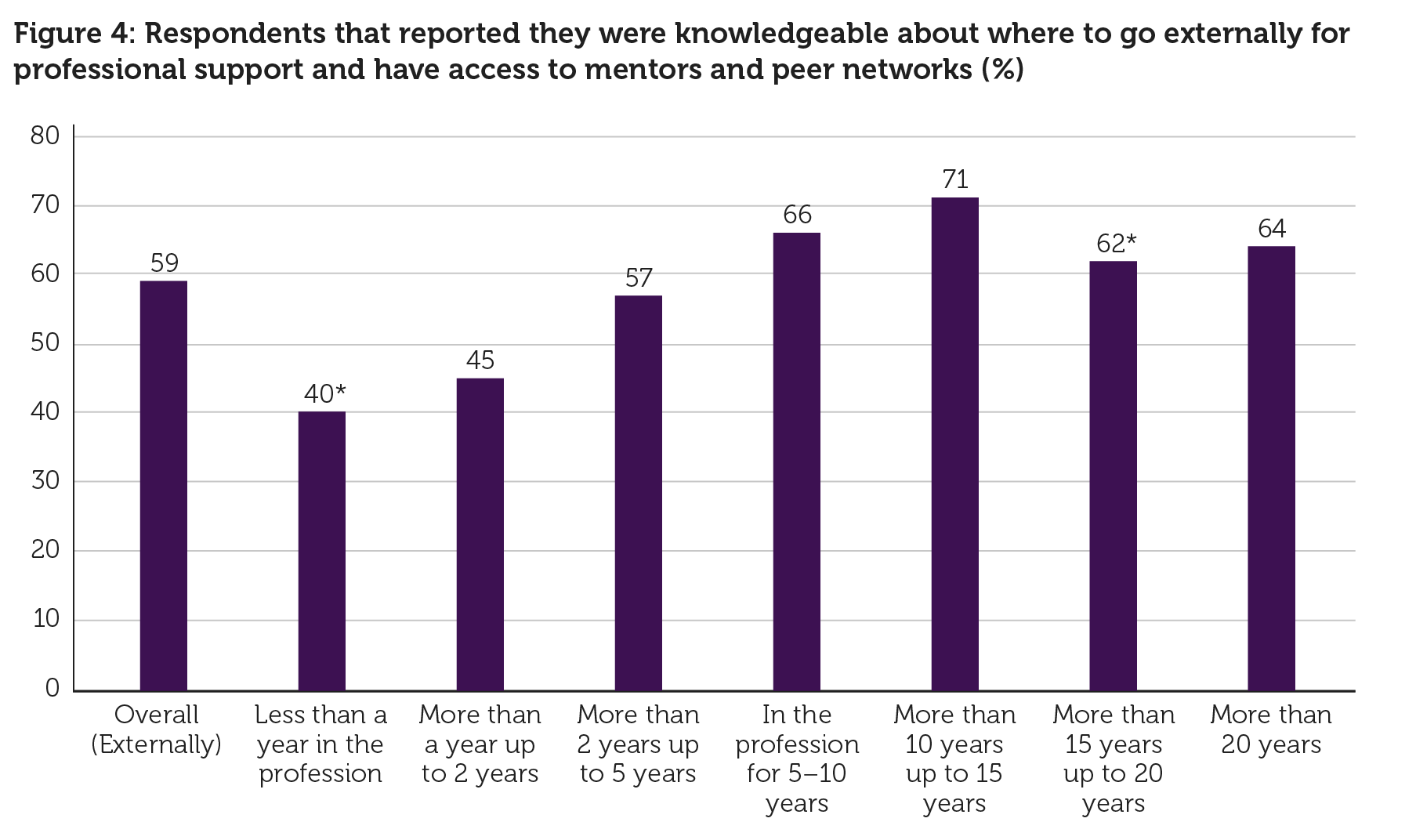
Overall 59% were knowledgeable about where to go for professional support, with those newer to the profession less confident about where to go for professional support (Figure 4). Knowledge about where to seek professional support increases as time within the profession increases but reduces slightly once people have been in the profession for 15 years.
Leaving the profession
Some 28% of respondents are likely to leave the profession in the next 2 years, interestingly the age distribution of responses was fairly even.
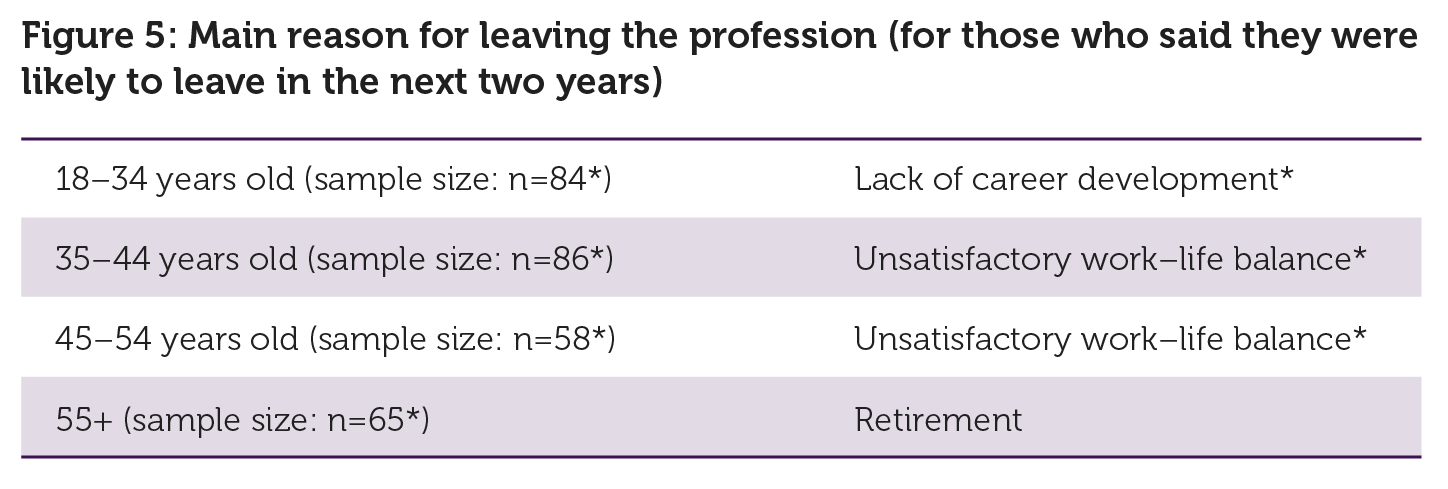
* Indicates small base sizes below n=100. These results are indicative only.
For those between the ages of 35-54 that wanted to leave the profession, unsatisfactory work-life balance was the most popular main reason provided (Figure 5). The 35-54 age bracket is the stage within life when people are most likely to have additional caring responsibilities and dependents (whether that be children or ageing parents, known as ‘sandwich’ carers). This is also when people may have the highest demands on their career with the responsibility of management without the autonomy that may come from more senior level roles.
For men, the most popular response for main reason for leaving the profession was retirement (25%) and for women it was unsatisfactory work-life balance (27%).
Those working part time were more likely to leave the profession in the next 2 years (39%) and the most popular main reason was retirement (37%), indicating that part-time work may be adopted to phase out of work and into retirement.
Career advancement

The top two barriers of organisational politics and lack of opportunities with current employer (Figure 6) were the same as given in a similar survey in 2023. A lack of self-confidence was also given as a a barrier to advancing their career. This highlights the importance of good line management and career development support.
People in small and medium-sized companies were more likely to feel there haven't been any barriers in their careers, for example, almost half (48%) of those working in small businesses (2 to 9 employees) said they have not experienced any barriers, dropping to 22% of those working in enterprises (250+ employees).
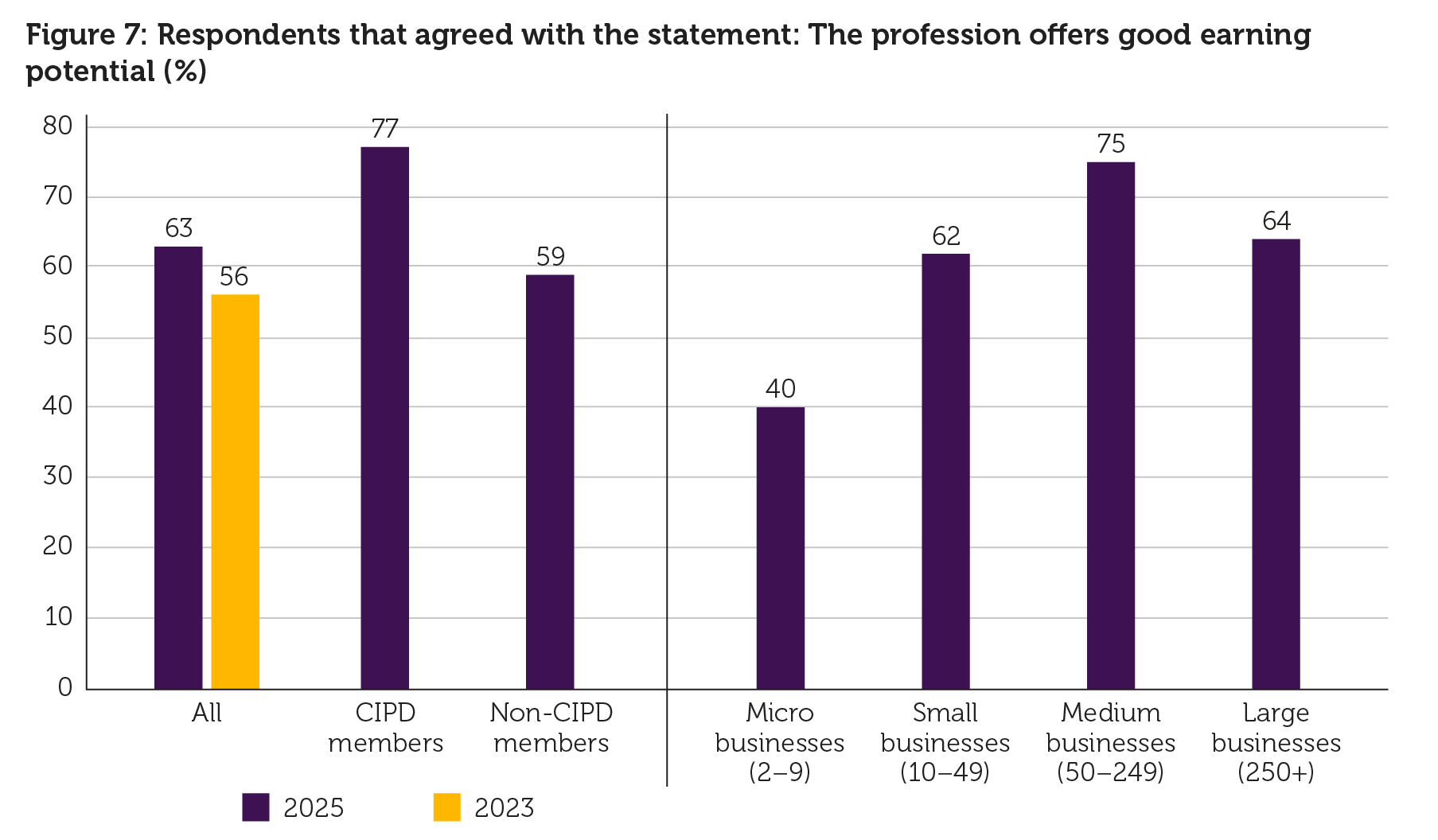
There was generally a positive response regarding the earning potential within the profession, with overall 63% saying the profession offers good earning potential (Figure 7). For CIPD members this figure rose to 77%. This is similar to data from Lightcast which showed that between 2022 and 2023, HR roles requesting CIPD qualifications, across all levels, paid up to £4,400 (16%) more than job posts not requesting CIPD qualifications.
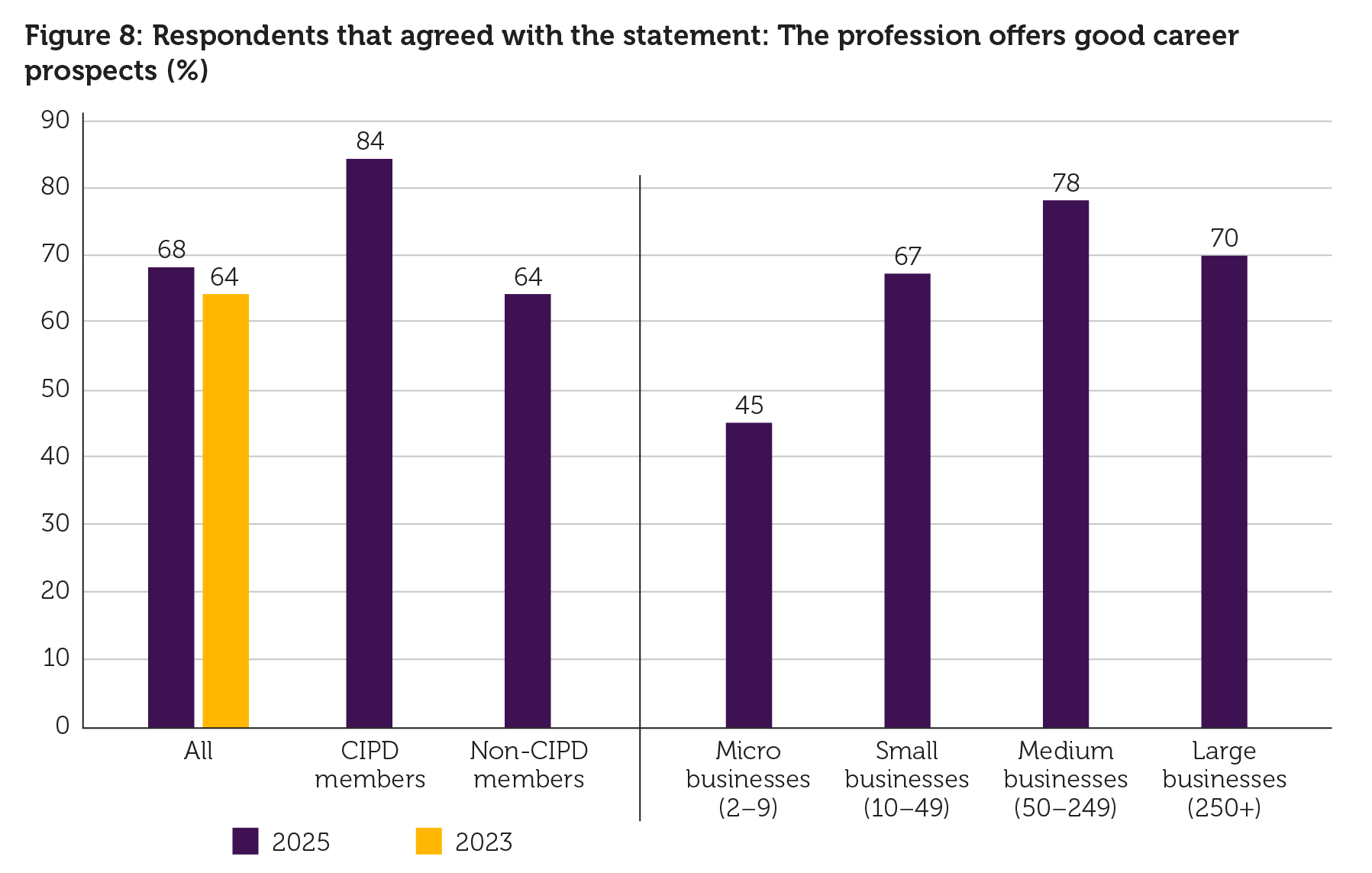
Overall 68% agreed the profession offers good career prospects, rising to 84% for CIPD members (Figure 8). Those within medium to large organisations were more likely to believe that the profession offered good career prospects. This may be a reflection of the greater requirements for HR that larger organisations have and therefore the greater number of career development opportunities they can offer.
The profession as a meaningful career
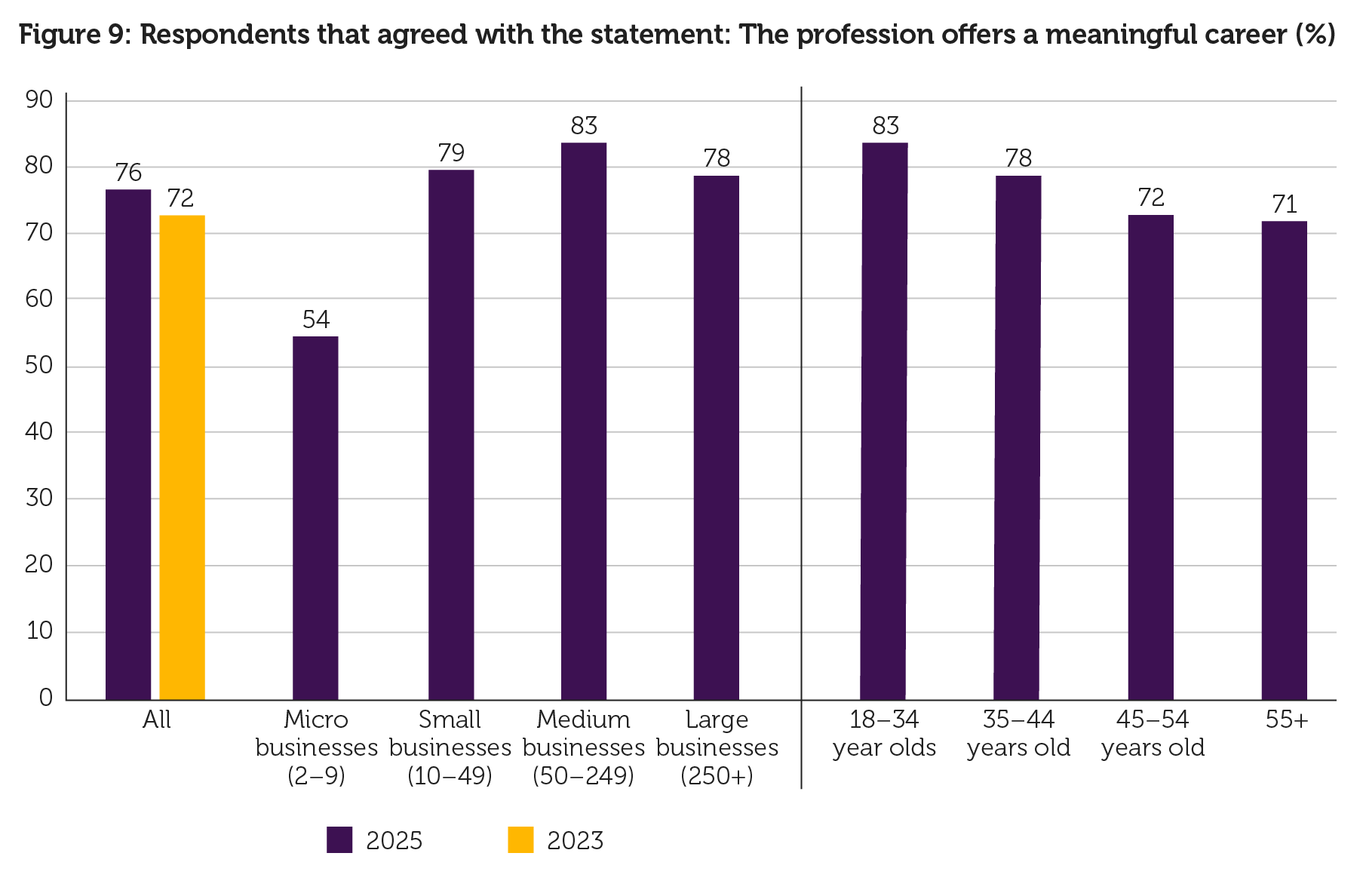
When it comes to how to respondents feel about their career, we can see that those within medium to large organisations feel more positively towards the profession with 83% and 78% respectively agreeing the profession offers a meaningful career (Figure 9). Younger respondents (18-34-year-olds) were significantly more positive (83%).
Read more survey findings on current challenges and perceptions within the profession.

















